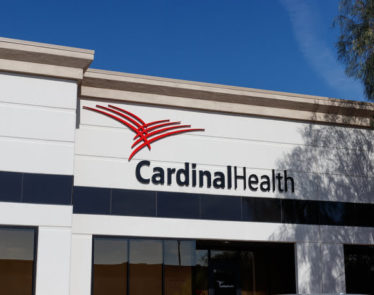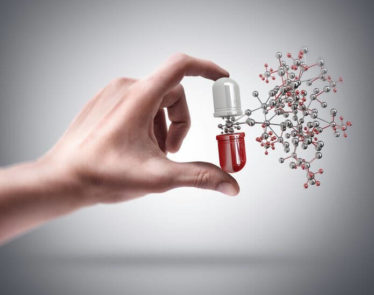
Cardiol Therapeutics Inc. (TSX:CRDL)(OTCQX:CRTPF) (“Cardiol” or the “Company“), a clinical-stage biotechnology company focused on developing innovative therapies for inflammatory heart disease, is pleased to announce that the U.S. Food and Drug Administration (FDA) has approved the Company’s Investigational New Drug (IND) application to commence a Phase II/III, double-blind, placebo-controlled clinical trial investigating the efficacy and safety of CardiolRx™, a pharmaceutically produced extra strength cannabidiol formulation, in 422 hospitalized COVID-19 patients with a prior history of, or risk factors for, cardiovascular disease (CVD). The trial will take place at major centers in the United States, where the prevalence of COVID-19 remains high.
Patients with COVID-19 primarily present with respiratory symptoms which can progress to bilateral pneumonia and serious pulmonary complications. It is now recognized that the impact of COVID-19 is not limited to the pulmonary system. Individuals with pre-existing CVD or who have risk factors for CVD (such as diabetes, hypertension, obesity, abnormal serum lipids, or age greater than 64) are at significantly greater risk of developing serious disease from COVID-19 and experience greater morbidity. Moreover, such COVID-19 patients are at significant risk of developing cardiovascular complications (such as acute myocardial infarction, cardiac arrhythmias, myocarditis, stroke, and heart failure) during the course of their illness, and which are frequently fatal, with an estimated 30 – 40% of patients who die from COVID-19 doing so from cardiovascular complications. A strategy to prevent or limit the number or severity of these cardiovascular complications is likely to considerably improve outcomes from this disease.
Cardiol’s Phase II/III trial has been designed to assess the efficacy, safety, and tolerability of CardiolRx™ in preventing cardiovascular complications in hospitalized patients, with a confirmed diagnosis of COVID-19 within the previous 24 hours, and who have pre-existing CVD and/or significant risk factors for CVD. The composite primary efficacy endpoint will be the difference between the active and placebo groups in the percentage of patients who develop, during the first twenty-eight days following randomization and first dose of study medication, a composite endpoint consisting of one or more of several common outcomes in this patient population, including all-cause mortality, requirement for ICU admission and/or ventilatory support, as well as cardiovascular complications, including the development of heart failure, acute myocardial infarction, myocarditis, stroke, or new sustained or symptomatic arrhythmia.
The study was designed and will be overseen by an independent Steering Committee, consisting of international thought leaders in inflammatory heart disease: Dr. Dennis McNamara (Chair), Professor of Medicine and Director of the Center for Heart Failure Research, University of Pittsburgh; Dr. Leslie Cooper (Co-Chair), Chair of the Mayo Clinic Enterprise Department of Cardiovascular Medicine and Chair of the Department of Cardiovascular Medicine, Mayo Clinic; Dr. Arvind Bhimaraj, Medical Director, Advanced Heart Failure, Mechanical Circulatory Support and Heart Transplant Programs, Houston Methodist Hospital; Dr. Barry Trachtenberg, Director, Cardio-Oncology and Cardiac Amyloid Programs, Associate Director, Mechanical Circulatory Support Program, Houston Methodist Hospital; Dr. Wilson Tang, Director of the Center for Clinical Genomics, Research Director, and staff cardiologist in the Section of Heart Failure and Cardiac Transplantation Medicine, Cleveland Clinic; Dr. Peter Liu, Chief Scientific Officer and Vice President of Research, University of Ottawa Heart Institute; Dr. Carsten Tschöpe, Vice Director of the Dept. of Cardiology, Charité University Medicine Berlin, Germany; and Dr. Matthias Friedrich, Professor of Medicine and Chief, Cardiovascular Imaging, McGill University Health Centre.
Dr. Dennis McNamara, Chair of the Steering Committee for the trial commented:
“As a Steering Committee, we are excited about the potential for this study to contribute valuable new information about the role of anti-inflammatory agents in the management of COVID-19. Now that approval from the FDA has been granted, we are anxious to get underway so that we can investigate the impact of CardiolRx in this very important disease process.”
“Receiving approval from the FDA for our IND application to initiate a clinical program in COVID-19 patients represents a major milestone for Cardiol Therapeutics and provides the opportunity to significantly accelerate the commercial development of CardiolRx,”
said David Elsley, President and CEO of Cardiol Therapeutics.
“The COVID-19 pandemic is providing our Company with a unique opportunity to rapidly study the cardioprotective properties of CardiolRx in patients who have a prior history of, or risk factors for, cardiovascular disease and are most vulnerable to the virus. Subject to study outcomes, our discussions with the FDA indicated that the design and scope of our Phase II/III trial may be used as a registration study in support of a New Drug Application.”
The rationale for using cannabidiol to treat patients with COVID-19 is based on extensive pre-clinical investigations by Cardiol and others in models of cardiovascular inflammation which have demonstrated that CBD has impressive anti-inflammatory and anti-fibrotic activity, as well as anti-ischemic, and anti-arrhythmic action, and that it improves myocardial function in models of heart failure. In pre-clinical models of cardiac injury, cannabidiol was shown to be cardio-protective by reducing cardiac hypertrophy, fibrosis, and the production of certain re-modelling markers, such as cardiac B-type Natriuretic Peptide (BNP), which is typically elevated in patients with heart failure. These data were accepted for presentation at the American College of Cardiology’s 69th Annual Scientific Session held virtually on March 28 – 30, 2020.
About Cardiol Therapeutics
Cardiol Therapeutics Inc. (TSX:CRDL) (OTCQX:CRTPF) (“Cardiol” or the “Company“) is a clinical-stage biotechnology company focused on developing innovative therapies for inflammatory heart disease. The Company recently received approval from the U.S. FDA for its Investigational New Drug (IND) application to commence a Phase II/III, double-blind, placebo-controlled clinical trial investigating the efficacy and safety of its lead product, CardiolRx™, in hospitalized COVID-19 patients with a prior history of, or risk factors for, cardiovascular disease (CVD). CardiolRx™ is an ultra-pure, high concentration cannabidiol oral formulation that is pharmaceutically produced, manufactured under cGMP, and THC free (<5 ppm).
Cardiol is also planning a Phase II international trial of CardiolRx™ in acute myocarditis, a condition caused by inflammation in heart tissue, which remains the most common cause of sudden cardiac death in people less than 35 years of age, and developing proprietary cannabidiol formulations for the treatment of chronic heart failure. Chronic heart failure is the leading cause of death and hospitalization in North America, with associated annual healthcare costs in the U.S. alone exceeding $30 billion. For further information about Cardiol Therapeutics, please visit cardiolrx.com.
Cautionary statement regarding forward-looking information:
This news release contains “forward-looking information” within the meaning of applicable Canadian securities laws. All statements, other than statements of historical fact, that address activities, events, or developments that Cardiol Therapeutics Inc. (“Cardiol” or the “Company”) believes, expects, or anticipates will, may, could or might occur in the future are “forward- looking information”. Forward-looking information contained herein may include, but is not limited to, statements with respect to that, subject to study outcomes, our Phase II/III study may be used as a registration study in support of a New Drug Application, the opportunity to significantly accelerate the commercial development of CardiolRx, the Company’s plans for a Phase II international trial of CardiolRx™ in acute myocarditis, its development of a proprietary cannabidiol formulation for the treatment of chronic heart failure, the potential for this study to contribute valuable new information about the role of anti-inflammatory agents in the management of COVID-19, and the likely improvement of outcomes from COVID-19 resulting from a strategy to prevent or limit the number or severity of cardiovascular complications. Forward-looking information contained herein reflects the current expectations or beliefs of Cardiol based on information currently available to it and is subject to a variety of known and unknown risks and uncertainties and other factors that could cause the actual events or results to differ materially from any future results, performance or achievements expressed or implied by the forward-looking information. These risks and uncertainties and other factors include the risks and uncertainties referred to in the Company’s Annual Information Form dated March 30, 2020, including the risks and uncertainties associated with product commercialization and clinical studies, and uncertainties in predicting treatment outcomes. These risks, uncertainties and other factors should be considered carefully, and investors should not place undue reliance on the forward-looking information. Any forward-looking information speaks only as of the date on which it is made and, except as may be required by applicable securities laws, Cardiol disclaims any intent or obligation to update or revise such forward-looking information, whether as a result of new information, future events or results or otherwise. Although Cardiol believes that the expectations reflected in the forward-looking information are reasonable, they do involve certain assumptions, risks, and uncertainties and are not (and should not be considered to be) guarantees of future performance. It is important that each person reviewing this news release understands the significant risks attendant to the operations of Cardiol.









